GraSPP Inspired Me to Become a Teacher
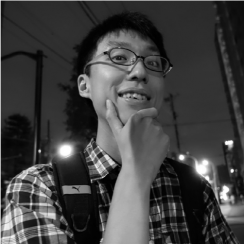
Class of 2015
When I was in my third year of high school, I was so drawn to my charismatic English teacher that I closely held the idea of becoming a teacher as my future career. But I wasn’t mentally prepared for that. While studying at a public junior high school, I saw how the teachers were striving day in and day out to support students with diverse backgrounds and circumstances. It didn’t look as though I would be capable of doing that job. “Can I maintain fairness with students who have values and backgrounds that are different from mine…?” That anxiety had stayed with me and I lacked confidence, so I ended up finishing college without taking a teaching course.
While learning a wide range of academic subjects under the open curriculum where there were no restrictions on the college courses to take, I became interested in political science in the second half of my third year. At the same time, I started to consider a future career in highly public jobs. Therefore, I decided to enter GraSPP to deepen my expertise in political science and also to eventually work in the public sector.
One of the courses at GraSPP that became a turning point for me was “Case Studies (Urban and Regional Policy and Infrastructure Finance: Solution Analysis.)” In addition to Professor Yoshitsugu Kanemoto, experienced business people were dispatched to teach the course from the MLIT (Ministry of Land, Infrastructure, Transport and Tourism) and Mitsui Fudosan Co., Ltd. (The instructors were: Prof. Takuya Kurita, Prof. Katsuya Hihara, Prof. Nobuhiro Naito, Prof. Taizo Hayashi, and Prof. Masahiro Tsujita.) I feel that the greatest attractions of this program are the size of the network and the lengths each teacher will go to for the students. In each class, we had opportunities to hold discussions with practitioners who were active at the forefront of community development. Sometimes we also planned visits to outside facilities. At any rate, the teachers generously made use of their resources in order to teach the students what the real “field” and “people” entailed.
While directly learning about the work of the teachers and practitioners, and their sense of responsibility towards society, I began to think about what I could do now as a GraSPP student. This was when I was about to finish my first year. As a result, I decided to take a leave of absence for a year to engage in community activities for “self-discovery.”
* Student interview I gave during my leave of absence for the GraSPP newsletter
https://www.pp.u-tokyo.ac.jp/graspp-old/newsletter/2014/d/newsletter20140203.pdf
The first thing I did after I took a leave of absence from graduate school was to participate in the Arakawa ward office learning support project, in the form of a paid volunteer. Through the encounter with the coordinator of the project, Ms. Misako Omura, (“Active Aunt for Local Community”), I not only supported learning but also engaged in planning to create a platform to support children in a broader sense (Children’s Place).
With the full support of the Arakawa Council of Social Welfare, a promoter of community welfare, I scrambled to figure out what kind of contribution I could make as a local citizen for people with certain needs, or who to contact in other cases… While doing so, there were many opportunities for me to realize what the professors were trying to teach us in the case studies class, that being what the real “field” and “people” are like. There were also many opportunities that enlightened me as to how naive I was.
In fact, this effort later became a public subsidized project of Arakawa Ward. (Arakawa Ward Making Children’s Place Project / Arakawa Ward, as a municipality, won the third Platinum Grand Prize Jury Special Award.) It also led to the formation of a network in which local residents, the government, and specialized institutions cooperate to offer comprehensive support for children.
* Newspaper articles on activities regarding the making of Children’s Place
http://www.okinawatimes.co.jp/articles/-/60320
http://www.tokyo-np.co.jp/article/tokyo/list/201801/CK2018012902000104.html
* Newspaper article for the network
http://www.tokyo-np.co.jp/article/tokyo/list/201711/CK2017112302000112.html
With the case study at GraSPP as a starting point, the experience of actually getting involved in the formation of public policy as a citizen became invaluable for me. After that I returned to grad school. I continued to engage in the activities above even after returning to school, and I was able to tackle studying at GraSPP with a more specific awareness of problems. In addition, I started to find it rewarding to have a part in the growth of children by interacting with a number of them having diverse values and backgrounds. With regard to the fear that I mentioned in the beginning of this essay, I no longer had to worry about whether I could fairly communicate with students who had values and backgrounds different from my own.
After graduating, I started working at a private company. I also continued to be actively involved in the activities that I mentioned above on holidays and weeknights. In the meantime, I began to reflect again on what I was really suited for, and the desire to become a teacher grew in my mind. However, I didn’t take any teaching courses at the university. In order to obtain a teacher’s license, student teaching is required in addition to earning the required credits at school. It became difficult to balance study with work. I eventually decided to quit my job, even though I had zero prospect of income afterward… In the midst of ponderings, I was asked by the Arakawa Council of Social Welfare to work for them for a while. Thanks to the offer, I was able to let go of my financial concerns. (On top of that, with the understanding and cooperation of my boss and colleagues, I was able to complete my student teaching requirements during paid holidays!) This enabled me to focus on the exam to acquire my teacher’s license while also engaging in practical social work. I finally became a teacher in 2018.
I strongly feel that I was able to figure out how I could engage in society thanks to having studied at GraSPP. I’m extremely grateful to the teachers at GraSPP for generously giving all of their resources to the classes and helping me find a direction in life.
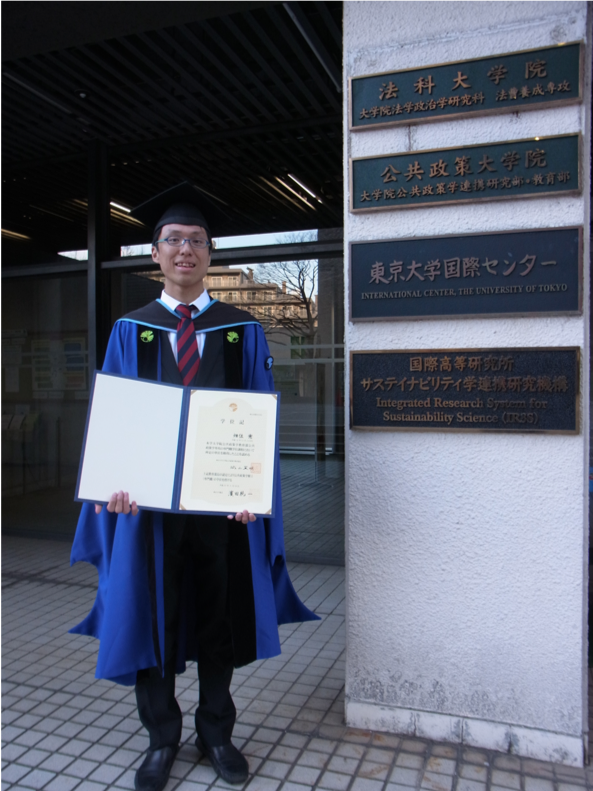
Commencement Ceremony at The University of Tokyo, Hongo Campus, March 2015
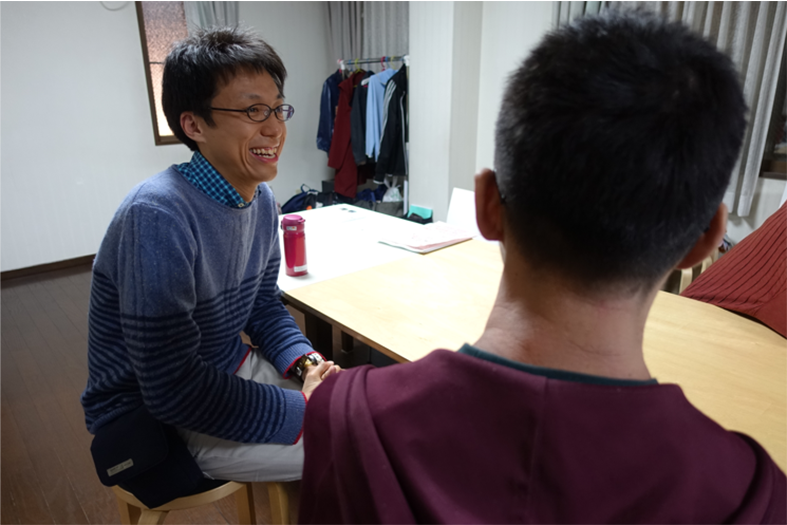
Learning support activities
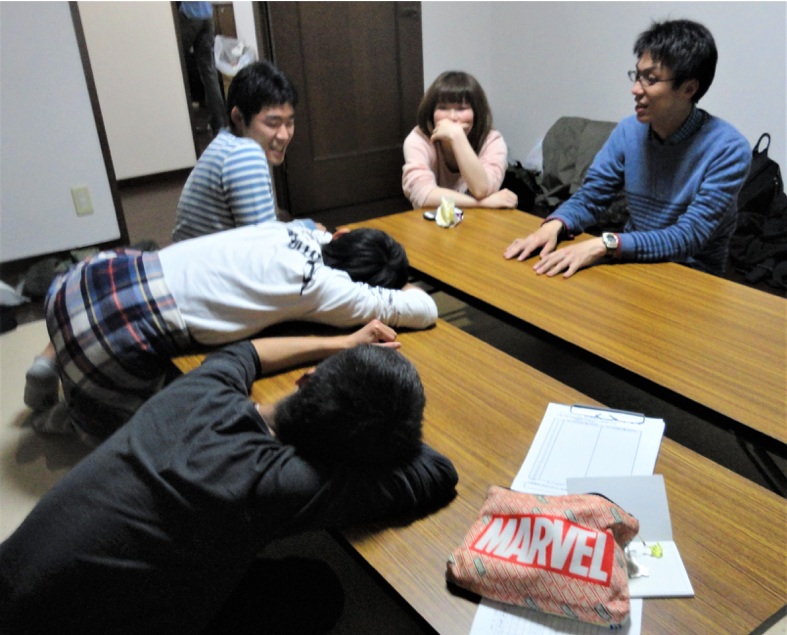
Making Children’s Place Project activities, sharing some laughs with other young staff and students
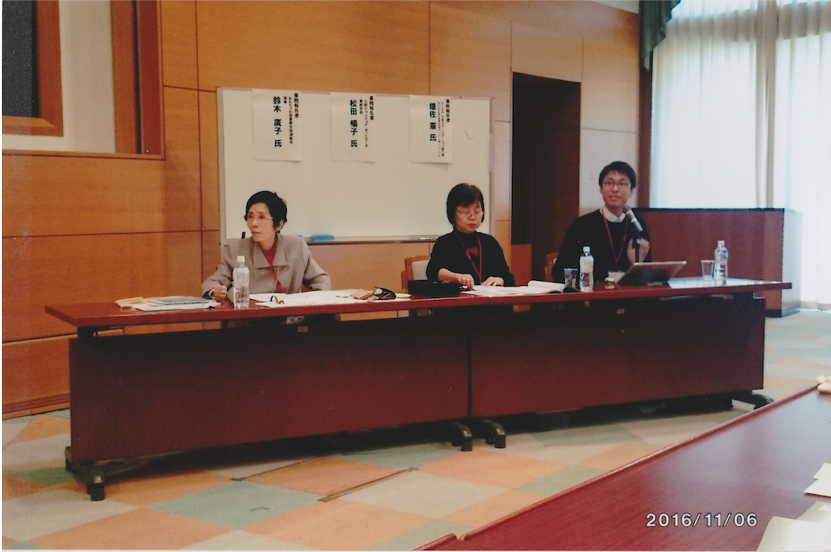
Giving a lecture on a case report regarding the Arakawa Ward Making Children’s Place Project and youth participation in civic activities at the National Volunteering Forum in 2016.National Olympics Memorial Youth Center, November 2016
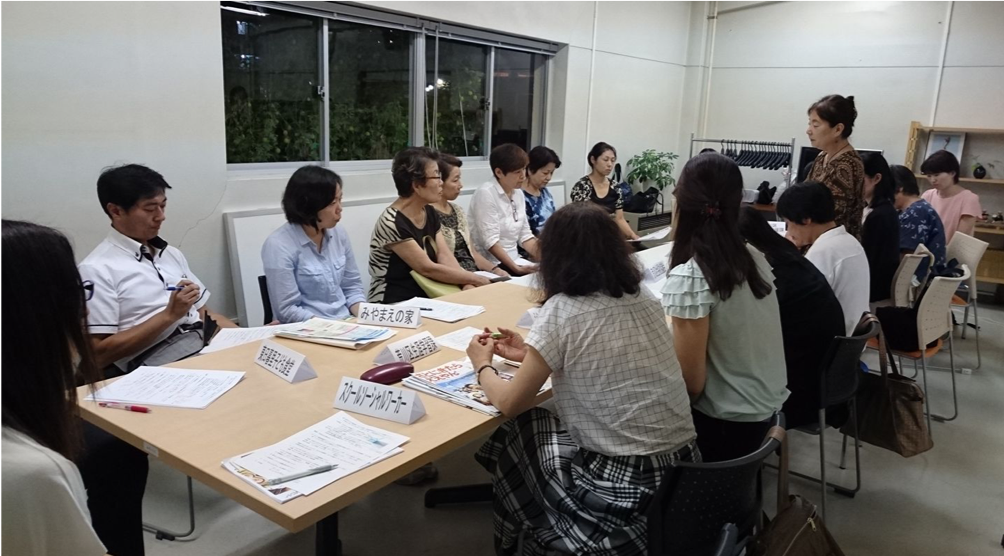
Liaison meeting for local residents, administrative staff and staff of specialized agencies engaged in child welfare activities in Arakawa Ward
(Arakawa Children’s Support Network conference)
Arakawa Lifelong Learning Center, July 2017
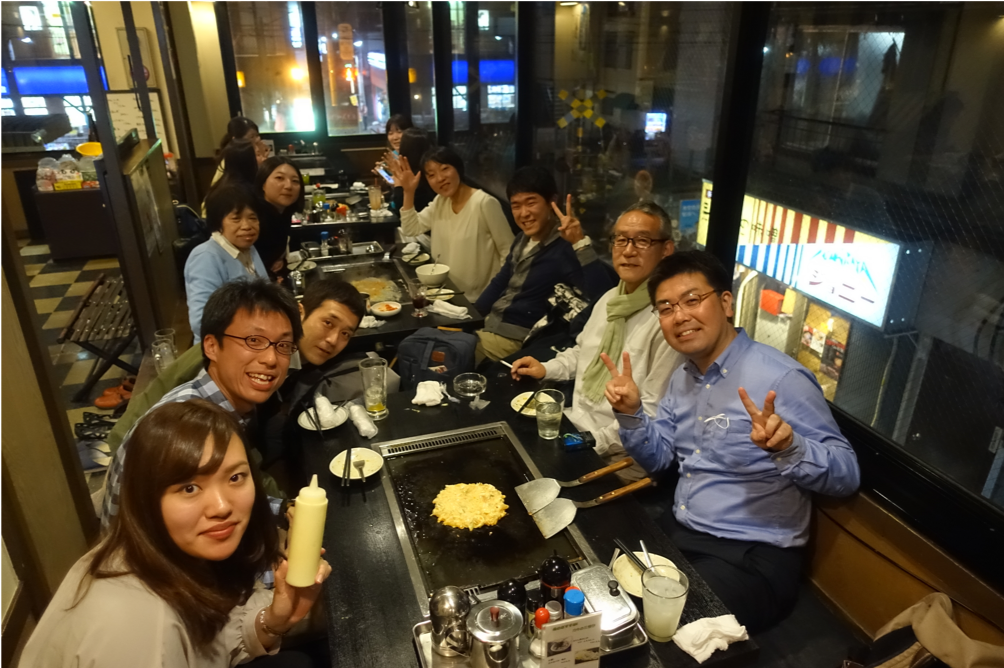
With my lifesavers: my boss and colleagues at the Arakawa Council of Social Welfare, who entirely supported me during my “self-discovery journey” and up until I became a teacher, March 2018


